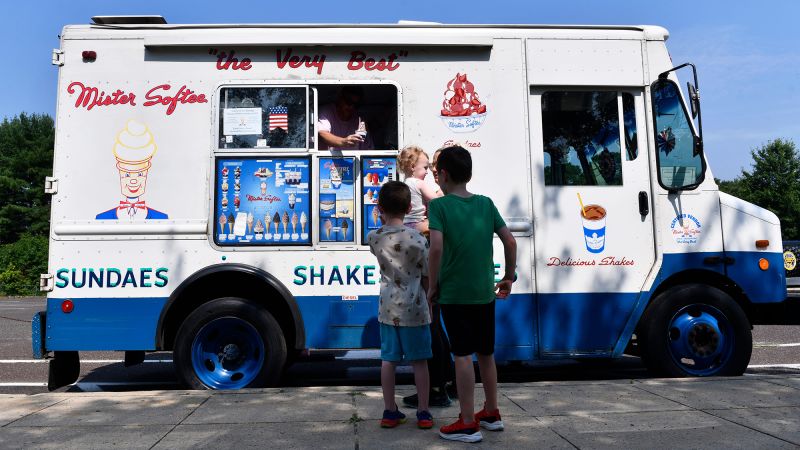The iconic Mister Softee ice cream trucks, once a staple in neighborhoods across the United States, are facing challenges that are making it harder for franchise owners to stay in business. Competition, rising costs, extreme heat, and changing social trends are all contributing to the decline in Mister Softee trucks on the streets. With only around 630 trucks remaining in operation in 21 states, down from over 2,000 trucks in 38 states at its peak, Mister Softee is struggling to adapt to the changing landscape of the ice cream industry.
Founded in 1954 by two brothers, James and William Conway, Mister Softee became the largest franchiser of ice cream trucks in the United States, thanks in part to its soft-serve ice cream and iconic jingle. The decision to serve soft ice cream was driven by the need for a more efficient and sustainable business model. However, with increased competition in the industry, including boutique ice cream shops and chains like Shake Shack selling milkshakes, Mister Softee franchise owners are finding it harder to compete.
Independent franchise owners, many of whom are first-generation immigrants and small business owners, are feeling the impact of rising costs and outside competition. From increased licensing charges, ice cream supplies, and maintenance expenses to challenging turf wars with other ice cream vendors, owning a Mister Softee franchise has become more challenging in recent years. Inflation on ice cream supplies has forced franchise owners to raise prices, impacting sales and profitability.
Extreme heat is also taking a toll on Mister Softee’s business, as the hot weather can cause equipment breakdowns and deter customers from venturing out for ice cream. With 2024 being the hottest summer on record for many US cities, the weather has further affected ice cream sales for established brands like Mister Softee. Changes in neighborhood demographics, family sizes, and children’s habits have also impacted the business, with more families having both parents working and kids spending less time outdoors during the summer.
Franchise owners like Carlos Vazquez are adapting to the challenges by extending the ice cream season, catering to private events, and utilizing technology like a mobile app to attract customers. Despite the difficulties, Vazquez emphasizes the importance of staying in the industry and preserving the Mister Softee brand as an icon. As Mister Softee trucks continue to face obstacles in the evolving ice cream market, franchise owners are finding ways to innovate and remain competitive in an increasingly challenging environment.


